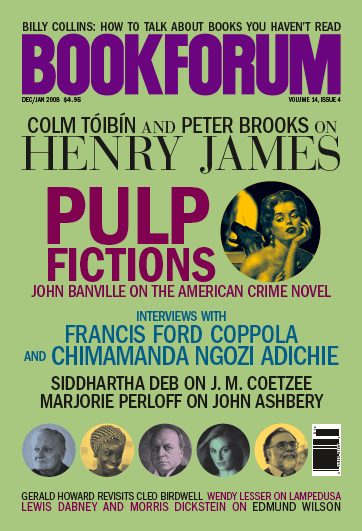
If you found yourself on the corner of Fifty-fourth Street and Sixth Avenue in Manhattan sometime in the ’60s, you would have come upon a towering figure clad like a Viking (flowing robe, leather cowl adorned with horns, spear) whose closed eyes and biblical beard bespoke a prophetic, otherworldly presence. With his alms cup and strange musical instruments at hand, Moondog held forth at this location for many of the years he busked on the sidewalks of New York City. Born Louis Hardin, the future street musician grew up in various towns around the West and Midwest. As Robert Scotto reports in a biography that draws on extensive interviews with his subject, Hardin’s father was an itinerant preacher and an “omnipotent tyrant” to his son. At the age of sixteen, the boy lost his sight while tinkering with a blasting cap. After graduating from the Iowa School for the Blind, where he wrote poetry, studied music, and discovered his Nordic heritage, he journeyed to New York, where he soon dubbed himself Moondog, in honor of a hobbled mutt that bayed at the moon on his family’s farm in Missouri.
Once settled in a cramped apartment in midtown, Moondog began hanging around New York Philharmonic rehearsals and was befriended by orchestra members; he even pressed his compositions—with no success—on Leonard Bernstein. Nevertheless, his inventive percussion music, sometimes overlaid with lyrics cribbed from Norse myth, gained an audience, and he became a minor celebrity, making recordings, grooving with Duke Ellington, appearing on TV shows like Steve Allen’s, and chatting on Dorothy Kilgallen’s radio program, The Breakfast Show. He was, we’re told, “one of the most photographed street figures of his time.” But Mr. Dog, as some Timesman of the day might have had it, was no crossover artist; his spare, mournful tunes, with titles like “I Came into This World Alone,” “Why Spend the Dark Night with You,” and “All Is Loneliness,” were hardly buoyed by monotone recitations of lines like “Death, when you come to me, may you come to me swiftly. I would rather not linger, not linger.” (A CD featuring a generous sample of his recordings is included.) Although, to be fair, a certain naive charm emerges from the lockstep rhymes and grandiose sentiments. Moondog was the very definition of sui generis—comparable maybe to Sun Ra, in his outlandish garb, or Harry Partch, in inventing his own instruments, or even Tiny Tim, with whom he shared the stage in a Greenwich Village club. (The two were joined there once by Lenny Bruce.)
Scotto dutifully records Moondog minutiae but does so humorlessly—which, while echoing his subject’s disposition, ill suits a treatment of such an improbable and comic (however inadvertently) life. I mean, the guy was known as the Viking of Sixth Avenue. If anything, the often-lugubrious music is quite fun for being so much what it is—the product of an utterly self-contained narcissism. The author is also prone to overdramatizing the obvious, with an annoyingly prescriptive touch: “The next day he was handicapped. . . . Few can empathize with such a loss, but to understand what it was like to absorb the punishment and move on is important, because of its role in what he became.” The infelicitous syntax is typical of the entire volume. Still, Scotto knows his Moondogiana, and this, for now, is the most complete reckoning of the life of this American—via the land of Thor—original.
